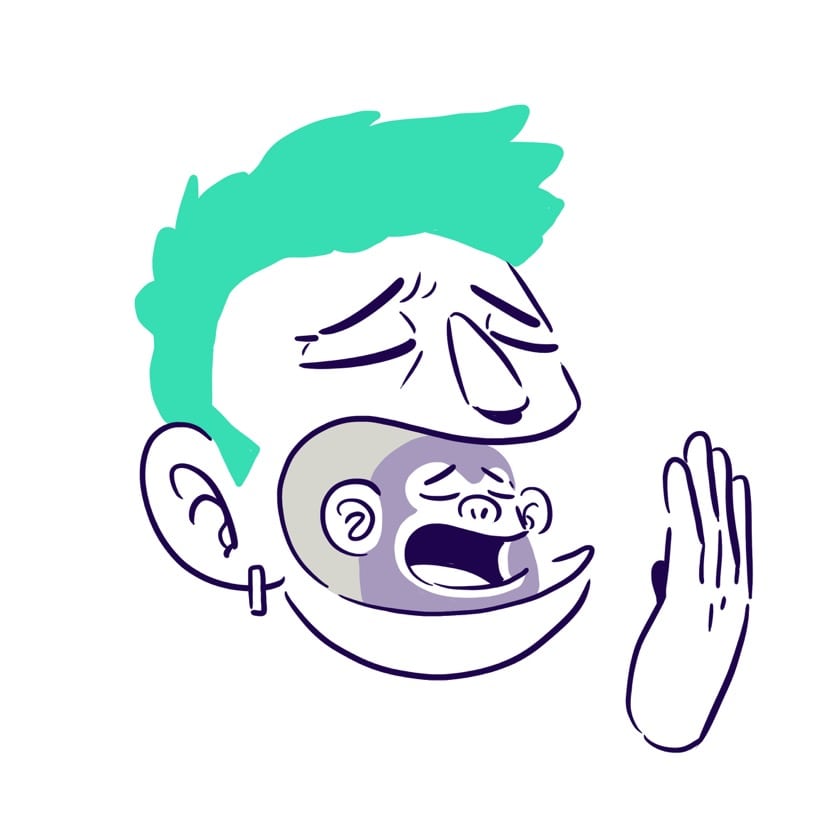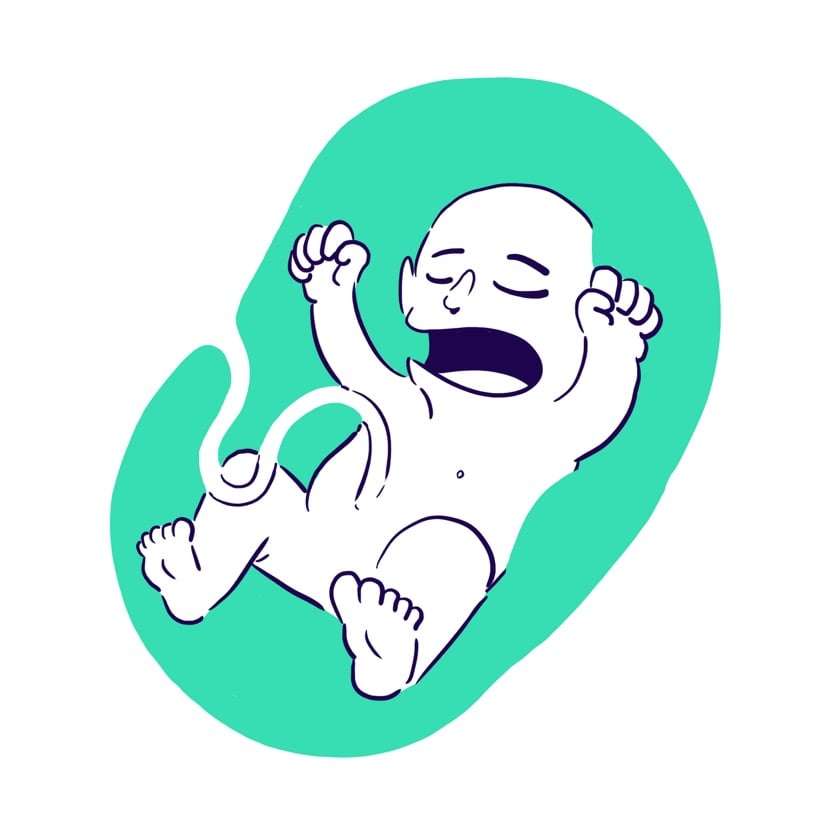Why do we yawn?
Yawning is universal! This sentence may seem a bit solemn to you, but, indeed, this statement is more than well-founded. In fact, since the dawn of time, we have been yawning. And this "we," also universal, includes the vast majority of living beings: animals and us, human beings. Yawning is therefore universal and ancestral. It is a reflex that has accompanied us throughout evolution and manifests even before our birth. But then, why do we yawn? Is yawning only related to sleep or fatigue? Explanations about this mystery that can sometimes be contagious!

I yawn, you yawn, he yawns… are we sleeping?
Before talking about contagion, let’s first focus on the origins of yawning. But actually, what is yawning? It is a reflex: yawning is a muscular stretch. This is obviously not reserved only for athletes, as we have already told you: it is universal! Nevertheless, yawning can be as dangerous as some sports since it is the leading cause of jaw dislocation. So be careful not to yawn so hard that you dislocate your jaw!
Although it is strongly associated with fatigue and boredom, we can still wonder what causes yawning. Indeed, for centuries, it has been the subject of many studies and theories, sometimes contradictory and poorly supported. Many scientists have studied this phenomenon. First, a 2014 study1 found that yawning has a thermoregulatory effect: in a warm environment or when the brain’s temperature rises, it helps cool it down. Another study links temperature and yawning2 by reporting that people yawn less when a warm cloth (at 46°) is applied to their forehead than when a cold compress (at 4°) is applied. Here, apparently, nothing to do with fatigue. In that case, why do we yawn in the morning, upon waking, or when we are bored?
In reality, we do not really yawn because we are tired, as explained by Dr. Walusinski, a specialist in this phenomenon: “For me, it is a vigilance stimulator. We know more generally that it is a universal behavior among vertebrates that can be associated with the metabolic phenomena of the sleep-wake cycle and the regulation of satiety.” Our famous muscular stretch thus acts as a reflex that stimulates our vigilance in case of low brain activity, which is the case in the morning upon waking when we are less alert. Of course, this does not mean that intelligent people yawn less than others thanks to the super activity developed by their brain! We are all equal when it comes to yawning. Well, almost all of us!
I yawn, you yawn, he yawns… do we yawn together?
Rest assured, this is not a conjugation lesson! It is rather about the notion of sharing or communication. Indeed, have you never noticed that seeing someone yawn gives you an irresistible urge to do the same? It is very likely that you have: we yawn when someone else yawns! This is called contagious yawning3. This theory of mind highlights the mental ability of everyone to adopt another’s point of view and decode their emotional state. In other words, compassion makes us sensitive to others’ yawns. So we would all be very sentimental. Really? Not so sure…
Indeed, yawning as a sign of compassion has its limits. A 2015 study4 reveals that contagious yawning does not apply to psychopaths and that they are not sensitive to it. Yawning would therefore be a sign of good mental health. Phew, that reassures us! Besides its association with the metabolic phenomena of our circadian rhythm (stated by Dr. Walusinski5), yawning turns out to be above all a reflex that, by definition, cannot be controlled. Our body manages this reflex to, according to various theories, oxygenate the brain, regulate its temperature, or keep us alert in case of decreased vigilance, boredom, or fatigue.

I yawn therefore I am!
As Socrates wrote, who must also have yawned sometimes, “I know that I know nothing.” This could partly be the conclusion of the analysis of yawning. Why do we yawn? Only our body really knows. We share this mystery with our animal friends since the dawn of time, without being able to fully understand it. The multitude of analyses and studies of all kinds have not succeeded in completely solving this physiological enigma. As proof, it is indeed a primitive center of our brain that “manages” yawns. So primitive that it has been observed that paralyzed people could move certain parts of their body again during a yawn! This astonishing fact was reported by the very serious “The New Yorker” referring to the work of a renowned British neurologist, Sir Francis Walshe.
You have understood, yawning remains as mysterious to our mind as it is unavoidable in our existence. This archaic reflex will occur about 250,000 times in our life, and even before, since fetuses also yawn. So, between irresistible gestures of compassion, announced loss of vigilance, excessive brain temperature, or even a miraculous (but unfortunately temporary) remedy for paralysis, yawning ultimately takes many forms, but with one unique certainty: that it connects us all through the universal manifestation of an expression of wide-open mouths on our distorted faces! So, on your marks, get set… yawn!
Sources :
[1] A thermal window for yawning in humans: yawning as a brain cooling mechanism, Massen JJ, Dusch K et al, Physiol Behav., 2014 [2] Yawning as a brain cooling mechanism: Nasal breathing and forehead cooling diminish the incidence of contagious yawning, Gallup, A. C., & Gallup, G. G., Jr, Evolutionary Psychology, 2007 [3] Échokinésie du bâillement, Wulusinski O, Electroneurobiologia Buenos Aeres, 2004 [4] Contagious yawning and psychopathy, Rundle Brian K, Vaughn Vanessa R et al, Personality and Individual Differences vol 86, nov 2015 [5] New conceptions on yawning, Review of theories from Hippocrates to today, Walusinski O, 2014
